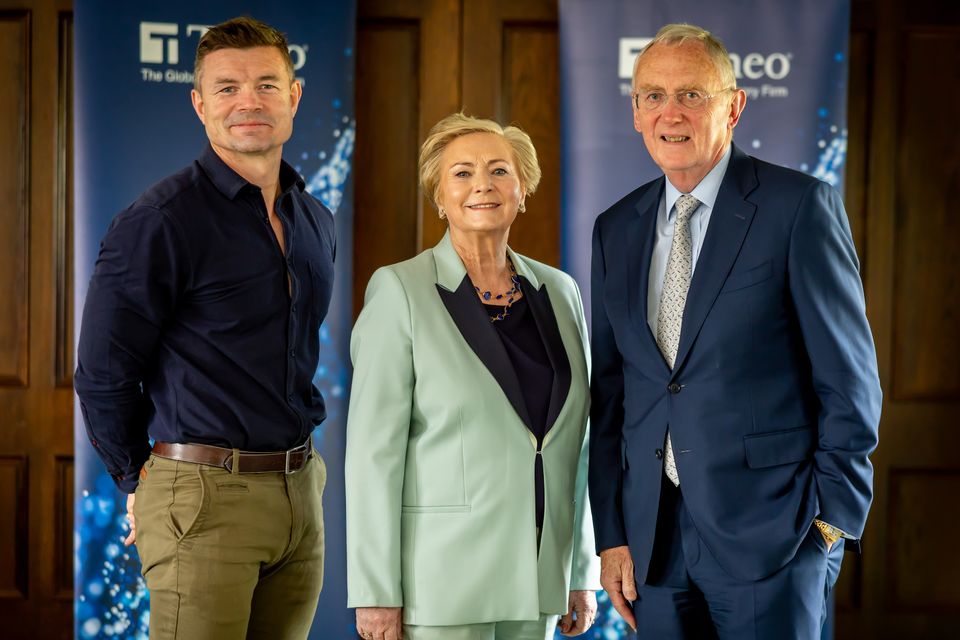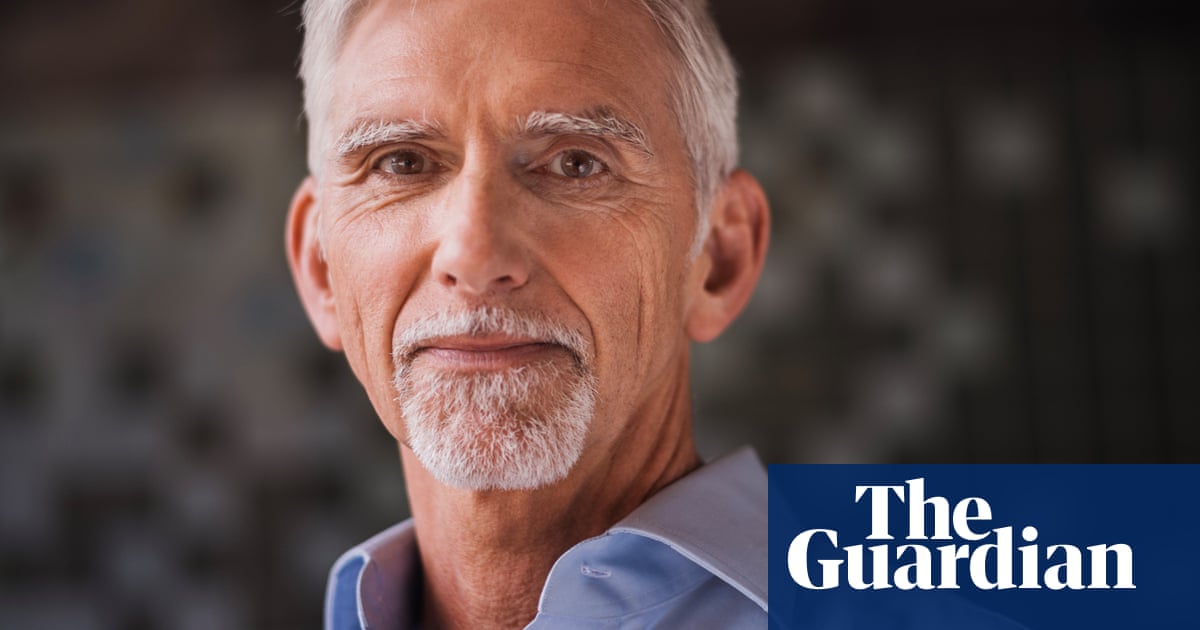Mother of Twins Travels From Germany to Chicago for Life-Saving Lung Transplant After Being Diagnosed with Terminal Lung Cancer | Newswise

Newswise — CHICAGO – May 11, 2025 – Eight months after giving birth to twins, Cornelia Tischmacher of Berlin, Germany, had a case of pneumonia that wouldn’t go away. The then 40-year-old went to the doctor in January 2018, where tests showed she had stage 3 lung cancer. As a nonsmoker who was healthy, worked out and had a busy career as an art historian and gallerist, Tischmacher was shocked by the diagnosis.
“I absolutely loved my job and had to travel quite a bit for work, but when I was diagnosed with advanced lung cancer, my priorities immediately shifted. I knew I had to do everything I could to stay alive for my children,” said Tischmacher. “My twins would never hear me say the words, ‘Mommy is going to die.’”
In June 2018, Tischmacher underwent surgery and chemotherapy to get rid of the cancer, but by October 2019, it returned. Doctors told her palliative care with chemotherapy and immunotherapy was the only option to possibly slow down the cancer’s relentless progression.
By June 2024, she could no longer breathe without supplemental oxygen and that’s when Tischmacher discovered a first-of-its-kind clinical program at Northwestern Medicine in Chicago called DREAM (Double Lung Transplant Registry Aimed for Lung-Limited Malignancies), where select patients with advanced lung cancers confined to the lungs can be considered for a double-lung transplant. Currently, Northwestern Medicine is one of the only known health systems in the world with a dedicated lung transplant program for patients with advanced cancers limited to the lungs.
“During our first telehealth visit with Cornelia, it was clear to us that she was at the end of the road,” said Ankit Bharat, MD, chief of thoracic surgery and director of the Northwestern Medicine Canning Thoracic Institute who performed Tischmacher’s transplant. “Cornelia had failed every other medical treatment available to her, including surgeries, chemotherapy and immunotherapy, but the cancer continued to progress to stage 4 and became so advanced that it was causing her lungs to fail. She couldn’t breathe, and a lung transplant was her only option to fix the lung failure, remove all the cancer cells from her body, and give her a fighting chance to be there for her twins.”
Leaving her life in Berlin for a second chance at life
After being accepted to the DREAM Program, Tischmacher boarded an air ambulance and flew from Berlin to Chicago in December 2024. She was admitted to the intensive care unit (ICU) at Northwestern Memorial Hospital and placed on the transplant waiting list on Christmas Eve. Two days after being listed, Tischmacher received new lungs on December 26, which was the second day of Christmas in Germany.
“With how quickly her disease was progressing, it was clear to us that Cornelia would not be able to leave the hospital without receiving a lung transplant. She was requiring up to 60 liters of oxygen per minute through her nasal cannulae, which is the absolute limit you can supply without a ventilator. For that very reason, we worked around the clock to complete her lung transplant workup and arrange all the logistics needed for her to stay in the United States,” said Krishnan Warrior, MD, a lung transplant pulmonologist at the Canning Thoracic Institute who has been caring for Tischmacher since her arrival.
“Receiving my lung transplant on December 26 was the best Christmas present I could have asked for,” said Tischmacher. “I remember waking up and thinking for the first time in a long time, I will be able to go to museums and go for bike rides with my kids without bringing an oxygen tank with me. I could finally breathe again. It was such a gift that I don’t take for granted, and I encourage everyone (who is able) to register as an organ donor – not just in the United States, but also in Germany.”
Reuniting with her 8-year-old twins
Tischmacher spent one week recovering at Northwestern Memorial before being discharged to an apartment in Chicago. The 48-year-old will remain in the city for one-year post-transplant to be near her medical team. The most difficult part is being far away from her husband, Udo Kittelmann, and their 8-year-old twins, Leo and Lucie, who remain in Berlin to continue their schooling. The twins were able to visit their mom for the first time since December, when they were reunited in Chicago in mid-April for spring break.
“Seeing my children for the first time in four months was absolutely wonderful. The weight of my illness had weighed them down, and to see me healthy again was overwhelming – but in a good way,” said Tischmacher. “It’s a happy continuation of the story because it could have been so different. When we said our initial ‘goodbyes’ in December, it was much more dramatic because we didn’t know how things would go.”
Tischmacher currently has no signs of cancer in her body and is now able to walk around Chicago, touring the local art galleries, breathing on her own. She was the first patient from Germany to receive a lung transplant at Northwestern Medicine. In the past, patients have also traveled from Asia, Brazil, Colombia, Canada, the Middle East and other parts of Europe for a lung transplant.
“Medicine is evolving rapidly, but unfortunately, the way medicine is practiced globally, not all treatments are available at all sites right away,” said Dr. Bharat. “Often when a center develops something new, it takes years for it to be available across the country or internationally. It’s very important for patients to find a second opinion and take matters into their own hands when they’re being told there are no other options.”
Lung cancer cases on the rise in young women
Cancers of the lung are the leading cause of cancer-related deaths in the United States with more people dying of lung cancer than colon, breast and prostate cancers combined, and doctors have noticed a startling new trend.
“On a daily basis, we’re seeing more young women being diagnosed with lung cancer,” said Dr. Bharat. “Conventionally, lung cancer has been associated with smoking and older age. While smoking certainly increases your chances of developing lung cancer, we’re seeing an explosion of lung cancer cases in patients who have never smoked or had limited smoking exposure – like Cornelia. The majority of them are young, and the majority are women, and we still aren’t sure why this is happening.”
The Canning Thoracic Institute has started several research programs to try and understand why more women are being diagnosed with lung cancer. They also launched a universal lung cancer screening program where patients who meet certain criteria can get screened for lung cancer, even if their insurance doesn’t provide financial support. The goal is to share the findings with the U.S. Preventative Services Task Force and urge them to let all patients beyond a certain age receive an annual lung cancer screening.
“If lung cancer is causing the most deaths in this country, impacting smokers and nonsmokers, we need a universal screening program just like we have for breast and colon cancer,” added Dr. Bharat.
About the DREAM Program
To date, Northwestern Medicine surgeons have performed more than 50 lung transplants for patients with advanced lung cancers.
Using lessons learned from pioneering COVID-19 lung transplantation in the U.S., they developed the novel surgical technique to clear the cancer during surgery while minimizing the risk of spread that has plagued prior such attempts at other hospitals.
“We’re very proud of the DREAM Program. This innovative technique involves putting the patient on full heart and lung bypass, delicately taking both cancer-ridden lungs out at the same time along with the lymph nodes, washing the airways and the chest cavity to clear the cancer, and then putting new lungs in,” said Dr. Bharat. “These patients can have billions of cancer cells in the lungs, so we must be extremely meticulous to not let a single cell spill into the patient’s chest cavity or blood stream. We believe this technique can help reduce the risk of recurrence, which we learned through our experience with pioneering COVID-19 lung transplants in 2020.”
Since Northwestern Medicine’s Lung Transplant Program first started in 2014, they’ve performed more than 600 lung transplant procedures for patients with end-stage lung diseases such as COVID, lung cancer, cystic fibrosis, chronic obstructive pulmonary disease (COPD) and more. In 2024, Northwestern Medicine had the shortest wait time for a lung transplant in the U.S. with a median wait time of four days. They also performed 148 lung transplants, the most performed at any transplant center in the U.S. for 2024.
Patients interested in being evaluated for a lung transplant can contact the 24-hour referral line at 312.695.5864 or 844.639.5864. For more information about the Lung Transplant Program or lung cancer screenings, visit nm.org.




